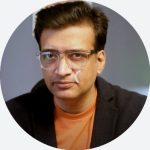Salesforce Marketing Cloud Personalization
In today’s competitive digital landscape, personalized marketing has become a necessity for businesses aiming to stand out and connect with their audience on a deeper level. Salesforce Marketing Cloud Personalization is a powerful tool that enables marketers to deliver tailored experiences to their customers across multiple channels. By leveraging advanced data analytics and automation, businesses can create highly targeted campaigns that resonate with individual customer preferences and behaviors. This approach not only boosts customer engagement but also drives higher conversion rates and loyalty.
Key Features of Salesforce Marketing Cloud Personalization

1. Advanced Data Segmentation
At the heart of Salesforce Marketing Cloud Personalization is the ability to segment your audience with precision. By utilizing Salesforce Marketing Cloud Data Segmentation, marketers can create dynamic segments that automatically update based on real-time data. This ensures that your campaigns are always targeting the right audience with the most relevant content. For example, you can segment your audience based on purchase history, browsing behavior, or engagement with previous campaigns.
2. Multi-Channel Personalization
Salesforce Marketing Cloud Personalization supports multi-channel marketing efforts, allowing you to deliver personalized messages across email, SMS, social media, and more. With tools like Salesforce Marketing Cloud Mobile Connect, you can reach your customers directly on their mobile devices with tailored messages that drive engagement and conversions. This multi-channel approach ensures that your customers receive a consistent and personalized experience, no matter where they interact with your brand.
3. Automation and AI Integration
Automation is a key component of Salesforce Marketing Cloud Personalization. By leveraging artificial intelligence (AI), marketers can set up automated workflows that deliver personalized content based on user actions and preferences. This not only saves time but also ensures that your messages are timely and relevant. AI-driven insights help you understand customer behavior and predict future actions, enabling you to craft more effective marketing strategies.
Salesforce Marketing Cloud Personalization Strategies:

1. Data Collection and Segmentation:
- Collecting and Analyzing Customer Data: This strategy involves gathering relevant data from various sources, such as customer interactions, purchase history, and preferences. The collected data is then analyzed to extract meaningful insights, allowing marketers to understand customer behavior and preferences.
- Segmentation Based on Demographics, Behaviors, and Preferences: Once the data is analyzed, marketers can segment their audience into distinct groups based on demographics (age, location, gender), behaviors (purchase history, engagement with content), and preferences (product interests, communication channels). This segmentation enables more targeted and personalized marketing efforts.
2. Personalized Email Campaigns:
- Crafting Customized Subject Lines and Email Content: Personalized email campaigns start with preparing subject lines and content that resonate with individual recipients. This involves using the recipient’s name, referencing past interactions, or tailoring the message to their interests, creating a more engaging and relevant communication.
- Implementing Dynamic Content: Dynamic email content allows marketers to customize the content based on recipient attributes, for instance, showcasing different products or offers based on the recipient’s previous purchases or preferences. This dynamic approach ensures that each recipient receives content that aligns with their unique characteristics.
3. Dynamic Content Blocks:
- Creating Content Blocks that Adapt Based on Customer Attributes: Dynamic content blocks are modular sections within marketing materials that change based on the recipient’s characteristics. This could include displaying different product recommendations, images, or text based on location, purchase history, or behavior.
- Ensuring Real-time Reflection of Customer Data: Dynamic content blocks are not static; they adapt in real-time as customer data changes. For example, if a customer’s preferences or behavior shifts, the dynamic content will automatically adjust to reflect these changes, ensuring the most relevant and up-to-date information is presented.
4. Predictive Personalization:
- Leveraging Predictive Analytics: Predictive personalization involves using advanced analytics and machine learning to forecast future customer behaviors. By analyzing historical data, predictive analytics can identify patterns and trends, helping marketers anticipate what a customer might be interested in or likely to do next.
- Tailoring Offers and Recommendations Based on Predictive Insights: Armed with predictive insights, marketers can tailor their offers and recommendations. For instance, they suggest products that align with a customer’s preferences or provide targeted promotions based on their anticipated needs. This proactive approach enhances the overall personalization strategy.
5. Journey Personalization:
- Designing Customer Journeys that Dynamically Adapt: Customer journeys map a customer’s path from awareness to conversion. Journey personalization involves creating these journeys to adapt dynamically based on customer interactions. This might include adjusting the sequence of communications or altering the content presented at each touchpoint.
- Implementing Decision Splits for Personalized Branching: Decision splits within customer journeys enable personalized branching. The journey can take different paths based on specific criteria or customer behavior. For example, suppose a customer engages with a particular email but doesn’t make a purchase. In that case, the journey can dynamically branch to provide follow-up content or promotions tailored to their interests.
These Salesforce Marketing Cloud Personalization strategies empower marketers to move beyond one-size-fits-all approaches, creating more meaningful and engaging experiences for their audience. Businesses can build stronger connections and drive more impactful results in their marketing efforts by harnessing data, dynamic content, predictive insights, and personalized journeys.
Benefits of Salesforce Marketing Cloud Personalization
1. Enhanced Customer Engagement
Personalized marketing campaigns are more likely to capture the attention of your audience and drive engagement. By using Salesforce Marketing Cloud Personalization, you can deliver content that resonates with your customers, leading to higher open rates, click-through rates, and conversions. Tailoring your messages to individual preferences makes your customers feel valued and understood.
2. Improved Customer Loyalty
When customers receive personalized experiences, they are more likely to develop a strong connection with your brand. Salesforce Marketing Cloud Personalization helps you build trust and loyalty by consistently delivering relevant and timely content. Over time, this leads to increased customer retention and advocacy.
3. Increased Marketing Efficiency
Automation and AI integration in Salesforce Marketing Cloud Personalization streamline your marketing efforts, allowing you to focus on strategy and creativity. By automating repetitive tasks and using data-driven insights to optimize your campaigns, you can achieve better results with less effort. This efficiency not only saves time but also maximizes your marketing ROI.
Best Practices for Salesforce Marketing Cloud Personalization
1. Leverage Data for Segmentation
To get the most out of Salesforce Marketing Cloud Personalization, it’s crucial to leverage data effectively. Use Salesforce Marketing Cloud Data Segmentation to create detailed audience segments and continuously update them based on real-time data. This ensures that your campaigns are always targeting the right people with the right messages.
2. Ensure Compliance
3. Utilize Multi-Channel Personalization
Don’t limit your personalization efforts to just one channel. Use Salesforce Marketing Cloud Mobile Connect to extend your personalized marketing campaigns to mobile devices, ensuring that your messages reach your customers wherever they are. A consistent multi-channel approach enhances the customer experience and drives better results.
Conclusion:
Salesforce Marketing Cloud Personalization is a game-changer for marketers looking to deliver tailored experiences that drive engagement and loyalty. By leveraging advanced data segmentation, multi-channel personalization, and AI-driven automation, businesses can create highly targeted campaigns that resonate with their audience. Integrating tools like Salesforce Marketing Cloud Data Segmentation, Salesforce Marketing Cloud SMS Compliance, and Salesforce Marketing Cloud Mobile Connect ensures that your personalization efforts are effective, compliant, and efficient.
Summary:
Salesforce Marketing Cloud Personalization empowers marketers to deliver personalized experiences that enhance customer engagement and loyalty. By leveraging data segmentation, multi-channel personalization, and AI-driven automation, businesses can create targeted campaigns that resonate with their audience. Integrating tools like Salesforce Marketing Cloud Data Segmentation, Salesforce Marketing Cloud SMS Compliance, and Salesforce Marketing Cloud Mobile Connect ensures a comprehensive and effective personalization strategy.
Author Spotlight

Chandan K. Sharma
An entrepreneur and author with a deep passion for technology, CRM, and digital marketing. Chandan is a versatile content creator and expert in CRM, sales automation, and marketing automation. He combines creativity with strategic thinking to deliver innovative, scalable solutions that help businesses streamline operations and drive growth.